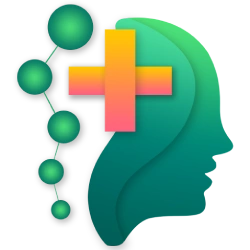Depression Treatment in Borivali – Dr. Nishtha Dalwani
“Through the darkest nights of depression, the stars of determination illuminate the path to healing.”
Depression
Depression is a mood disorder that affects millions worldwide, characterized by persistent feelings of sadness, hopelessness, and disinterest in daily activities. It can impact all aspects of life, including relationships, work, and physical health. Untreated or misdiagnosed depression can escalate to self-harm or suicide attempts. Among various types, clinical depression is the most severe. However, with proper treatment including medication, therapy, and lifestyle adjustments, this mental disorder can be effectively managed and even cured.
Why is depression on the rise in India, and what steps can be taken to address this growing mental health concern?
The increasing prevalence of depression in India can be attributed to a combination of factors. Rapid urbanization and modernization have brought about significant lifestyle changes, leading to heightened stress levels and social pressures. However, stigma and lack of awareness surrounding mental health issues persist, discouraging many individuals from seeking timely help or discussing their symptoms openly. Additionally, there is a notable shortage of mental health professionals and limited access to mental health services, particularly in rural areas. Addressing these challenges requires concerted efforts to raise awareness, reduce stigma, and improve access to quality mental health care across the country.
What are the causes and symptoms of depression?
Causes of Depression:
- Biological Factors: Imbalance in neurotransmitters such as serotonin and dopamine, genetic predisposition, and changes in brain structure can contribute to depression.
- Psychological Factors: Trauma, abuse, chronic stress, or significant life events like loss or failure can trigger or exacerbate depression.
- Environmental Factors: Poverty, unemployment, social isolation, and lack of social support can increase the risk of developing depression.
Symptoms of Depression:
- Persistent Sadness: Feeling sad, empty, or hopeless most of the time.
- Loss of Interest: Losing interest or pleasure in activities once enjoyed.
- Changes in Appetite or Weight: Significant weight loss or gain, or changes in appetite.
- Sleep Disturbances: Insomnia (difficulty sleeping) or hypersomnia (excessive sleeping).
- Fatigue: Feeling tired or having low energy most days.
- Difficulty Concentrating: Trouble focusing, making decisions, or remembering things.
- Feelings of Worthlessness: Feeling worthless or excessively guilty.
- Physical Symptoms: Headaches, digestive problems, or chronic pain without a clear cause.
- Reckless Behavior: Engaging in reckless behavior, substance abuse, or thoughts of self-harm or suicide.
- Social Withdrawal: Withdrawing from social activities or isolating oneself from friends and family.
What happens if depression is left untreated?
If left untreated, depression can have serious consequences on an individual’s mental, emotional, and physical well-being. It may lead to prolonged suffering, worsening symptoms, and increased risk of self-harm or suicide. Additionally, untreated depression can negatively impact relationships, work or academic performance, and overall quality of life. Seeking timely treatment and support is crucial to managing depression and preventing further complications.
What are the treatment options for depression?
- Medication: Antidepressant medications are commonly prescribed to help regulate brain chemistry and alleviate symptoms.
- Psychotherapy: Various forms of therapy, such as cognitive-behavioral therapy (CBT), interpersonal therapy (IPT), or psychodynamic therapy, can help individuals address negative thought patterns and learn coping skills.
- Electroconvulsive therapy (ECT): In severe cases or when other treatments have not been effective, ECT may be considered to stimulate specific areas of the brain and alleviate symptoms.
- Transcranial magnetic stimulation (TMS): TMS is a non-invasive procedure that uses magnetic fields to stimulate nerve cells in the brain, particularly in cases of treatment-resistant depression.
- Hospitalization: For severe cases where individuals are at risk of self-harm or suicide, hospitalization may be necessary to provide intensive treatment and ensure safety.
Book an appointment with Dr. Nishtha Dalwani, best psychiatrist and psychotherapist in Mumbai specializing in comprehensive mental health care. With expertise in treating depression and anxiety, Dr. Dalwani offers compassionate and personalized treatment plans for her patients’ well-being. Contact us today to schedule your consultation.

